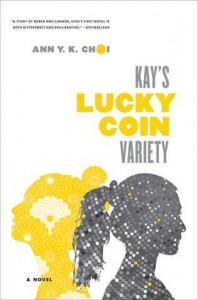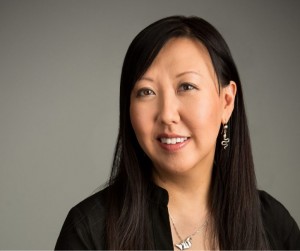
In high school I worked hard to cover up my depression. My mother was ill, and my family laboured to keep our convenience store open, as it was our only source of income. Because my grades were good and I was quiet, I kept under my teachers’ radar, quietly stabbing push-pins into my thighs during class. I was seventeen when I first attempted suicide. From that moment onward, every counsellor, therapist, and doctor, as part of one treatment plan or another, encouraged me to write. While the advice was well-intentioned and eventually helped, it took decades for me to stop associating writing with pain and anger.
I was in my forties by the time I was ready to share my writing. I wanted to capture my immigrant experiences for my daughter so that she could understand what life was like for her mother and grandparents upon arriving in Canada in the mid-70s. I signed up for a creative writing class through the School of Continuing Studies at the University of Toronto. Because the class was in an “academic” setting, so different from my bedroom where I wrote, I was able to ease into the idea of writing to publish.
 Kay’s Lucky Coin Variety is a work of fiction, but at its core are threads of real-life experience. Writing it forced me to confront old hurt. Pain and anger that I had buried long ago, or that I hadn’t even known existed. The early years of struggling to learn English, being picked on at school, and adapting to life in Canada. Fearing for myself and my family in the store where we were regularly harassed and even robbed. Then, there was the violence at home. Even as I write this, my heart is racing, my breathing more rapid. Somewhere a part of me is crying. Some hurts never go away; we can only learn to manage them.
Kay’s Lucky Coin Variety is a work of fiction, but at its core are threads of real-life experience. Writing it forced me to confront old hurt. Pain and anger that I had buried long ago, or that I hadn’t even known existed. The early years of struggling to learn English, being picked on at school, and adapting to life in Canada. Fearing for myself and my family in the store where we were regularly harassed and even robbed. Then, there was the violence at home. Even as I write this, my heart is racing, my breathing more rapid. Somewhere a part of me is crying. Some hurts never go away; we can only learn to manage them.
A demanding job as a secondary-school teacher helps, because during the day I am thoroughly distracted by my professional responsibilities. Still, working with at-risk students who also experience trauma, violence, and discrimination of all kinds poses other emotional challenges for me. Using on myself the techniques that also help them, I’ve been able to gain a sense of control. For example, knowing that when I am overwhelmed it’s almost impossible to write, I’ve looked for ways to create safe and encouraging spaces. My writing circle has proven to be one of the most invaluable.
The 11th Floor Writers was born out of a creative writing class I took at the University of Toronto. Eight to ten of us meet every second Saturday of the month. We’ve been together for ten years. This is my safe place to share rough drafts and to receive critical feedback. Now I also turn to my editor and agent, but in the beginning, before the book deal, my writing circle was it. Unlike friends and family, we meet to serve a specific purpose: to talk and listen to each other about our respective writing projects. We also attend literary events, especially supporting one another if a member is participating. I cannot overstate the importance of building relationships with others who write, and becoming part of a writing community.
I still have trouble staying focused for long periods of time when I’m writing anything, be it a poem or a personal essay. I’ve accepted this and allow myself regular unscheduled “brain breaks.” I get up and move away from the computer to recharge. When I’m working on an emotionally demanding scene, I can’t listen to music. It triggers emotions that overwhelm me, especially when I hear songs I used to listen to as a means of escaping or coping. This self-knowledge ensures that I avoid such triggers.
Mindfulness too helps me. When I feel myself inching towards dark places, or if I have a strong physical reaction to something I’m writing, I focus on an object – something I can hold in my hand, like a pen. I focus on the humming of the air conditioner, on things external to my body. Eyes closed, I concentrate on all the subtle flavours of a piece of dark chocolate melting in my mouth. Paying attention to the moment grounds me and allows me to return to putting words on paper.
People are quick to point out how wonderful it is that I can write anywhere, anytime. But when the writing doesn’t serve to relieve pain or bring clarity to internal chaos, this flexibility can feel like a burden. So I do not demand that I write every day. I can’t, and that’s okay. When I don’t want to write, I read. A good novel or poem takes me out of myself and recharges me mentally and creatively. My stress level lowers.
Someone recently asked, “Why do you keep writing if it poses such challenges?” I didn’t have an answer, and instead took the question to a meeting of my school board’s regional English department heads. There I asked fellow teachers for their help in understanding why so many writers persevere through personal pain to tell their stories. I learned from our conversation that I had been using my writing as a tool to engage others in dialogue around the themes I explore in my work: family, social identity, mental health and well-being, diversity, and immigration. Given my cultural background, the group reminded me, my writing fosters an awareness of voices not necessarily represented in mainstream media or books.
I grew up believing that silence was a strength and that suppressing my anger was proof that I was strong. But now I see the real power comes from sharing a voice and daring to be heard. Wielding that power is therapeutic; it numbs the hurt. More than that, it is my way of giving voice to those who may not have one. This, I realize, is why I keep writing.
♦ ♦ ♦
ANN Y.K. CHOI is an author and educator. Her novel, Kay’s Lucky Coin Variety, was shortlisted for the 2016 Toronto Book Award and named One of CBC Books 12 Best Canadian Debut Novels of 2016. The story was inspired by her family’s immigrant struggles and their lives spent in a family-run variety store. Choi lives in Toronto with her husband and daughter.
Website: https://annykchoi.com
Twitter: @annykchoi
Facebook: annykchoi
Ann was guest speaker for Allyson Latta’s sixth annual Turquoise Waters Writers’ Retreat (2017), held in the Kawartha Lakes, Ontario, Canada.

Ann’s honesty is so refreshing and must prove to be a salve for many of her students, who in all likelihood experience similar difficult challenges. I like that she is able to identify such specific antidotes to her depression and isn’t afraid to walk away and take breaks as needed.